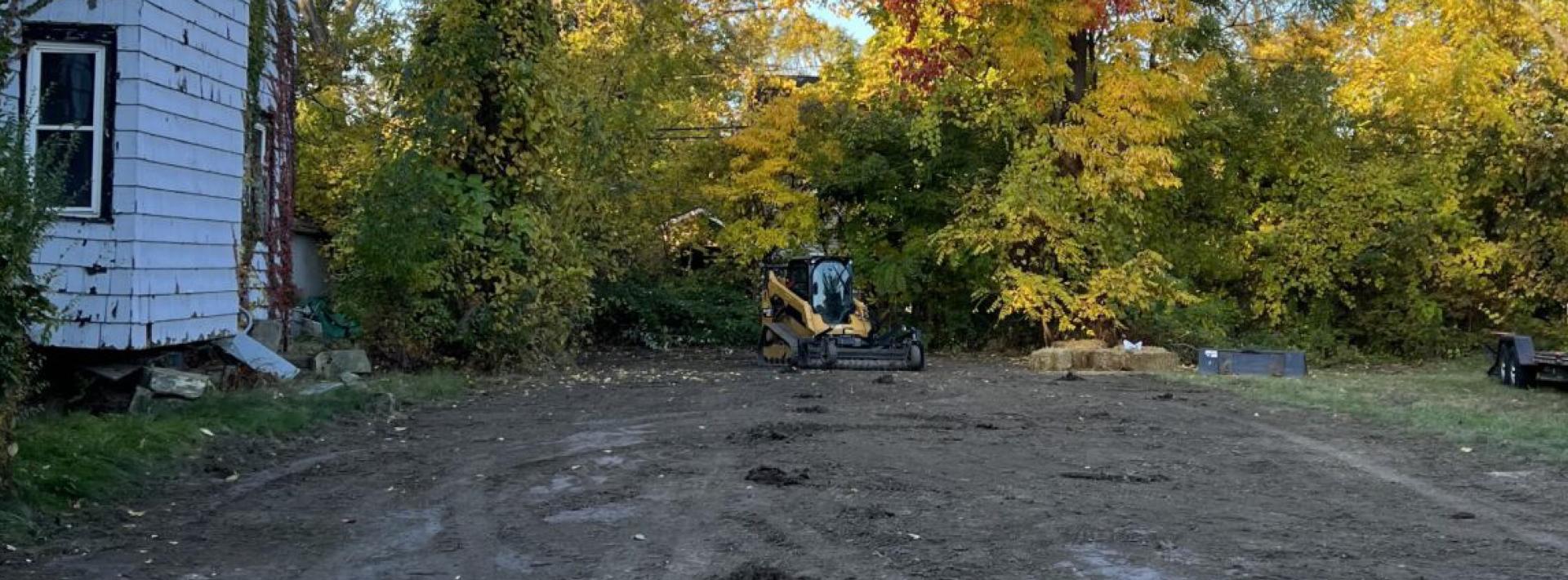Lead is the most common contaminant in urban soil from historic use of leaded gas and paint
November 3, 2023 — Cleveland — The City of Cleveland Department of Building and Housing is taking on lead, both inside and out.
Last week, during National Lead Poisoning Prevention Week, the department teamed up with Kurtz Bros., Inc. and researchers from The Ohio State University to test a revolutionary approach to decreasing residential lead exposure.
With additional support from the Cleveland Department of Public Health, researchers are evaluating a novel soil blend that, when applied to residential or commercial lots, will chemically bind lead and reduce risk from soil and dust ingestion/inhalation while improving overall topsoil quality.
"Lead poisoning is a public health crisis with a housing solution,” said Cleveland Director of Building and Housing Sally Martin O’Toole. “We talk a lot about lead dust in homes, but soil in urban yards, where young children often play, also needs our attention. This is particularly true along heavily traveled roadways and around the drip lines and along porches of homes with peeling lead paint.”
The test treatment project was done at a city-owned site on East 102nd Street with documented lead soil contamination. Kurtz Bros. removed existing materials from the site, regraded the property, then applied their Lead Soil Treatment application to the existing soil.
Final testing of the soil will be done later this month, but early results are promising. The treatment material is now a vegetative growing medium planted with pollinator seeds and clover.
Researchers are hopeful that this solution will make a significant impact toward a lead-safe Cleveland, particularly in legacy lead hotspots.
"Our soil application has been proven to immobilize up to 50 percent of lead in the soil, significantly reducing the risk of lead entering the bloodstream," said Dr. Nick Basta, Professor of Soil and Environmental Chemistry at The Ohio State University. “A clean soil cap on top of the treated soil further reduces exposure to both lead and any other historical contaminants.”
Ultimately, the team anticipates ongoing partnerships with city and county demolition programs to treat and protect demolition lots as well as surrounding sites.
"We are excited to be part of this innovative solution to combat lead contamination," said Jason Ziss, Director of Business Development with Kurtz Bros., Inc. "We believe this can be a real game changer for how the City of Cleveland handles legacy lead soil contamination, reducing child blood lead levels and protecting kids from the terrible health impacts of lead exposure."
More about the hazards of lead in soil from the U.S. EPA: Lead in Soil (epa.gov)
More about soil testing and treatments from Ohio State: Home | Damaged Soil Investigation, Restoration and Treatment (osu.edu)



